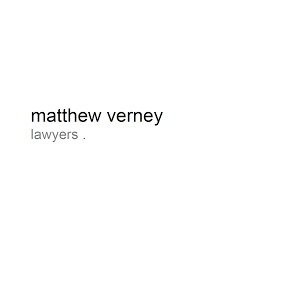Best Criminal Litigation Lawyers in Devonport
Share your needs with us, get contacted by law firms.
Free. Takes 2 min.
List of the best lawyers in Devonport, Australia
About Criminal Litigation Law in Devonport, Australia
Criminal litigation in Devonport, Australia refers to the process of going to trial for a criminal case. This region of the country adheres to the Criminal Code Act 1924, which covers the majority of criminal laws for Tasmania. Cases are typically heard in the Devonport Magistrates Court for less serious offences, and the Supreme Court of Tasmania for more severe offences. The process of criminal litigation involves a complex interaction between prosecutors, defence lawyers, and the court to ensure justice is served.
Why You May Need a Lawyer
Individuals may require the services of a lawyer in various situations. If you have been accused or charged with a criminal offence, a lawyer can provide vital advice and representation. Lawyers can guide you in terms of dealings with the police, court procedures, and pleading. They can also play a critical role during trials or any appeals that arise from a conviction. Moreover, they can discuss potential defences available to you and negotiate on your behalf for bail or sentencing.
Local Laws Overview
Devonport, like the rest of Tasmania, operates under specific laws and regulations. Included in this are particularities, such as the concept of ‘fresh pursuit’ which allows police to pursue and arrest without warrant, anyone who has committed, or whom they reasonable suspect to have committed, a crime. Moreover, criminal offences are classified into indictable and non-indictable crimes. Indictable crimes are more serious and are heard by the Supreme Court, while non-indictable crimes are minor and handled by the Magistrates Court.
Frequently Asked Questions
What is a non-indictable offence?
Non-indictable offences are less serious criminal offences, such as traffic violations and minor thefts. They are heard in the Magistrates Court.
What is an indictable offence?
Indictable offences are more serious crimes such as burglary, assault, and murder. They are usually heard in the Supreme Court.
What is the role of a defence lawyer?
A defence lawyer provides advice and representation to those charged with a crime. They work to formulate a defence, represent the client in court, and assist with making pleas and dealing with sentencing.
Can I represent myself in my criminal litigation?
While it is legally possible to represent yourself in criminal court, it is generally not recommended due to the complexity of the law and the potential consequences involved.
What if I cannot afford a criminal lawyer?
If you cannot afford a lawyer, you might be eligible for legal aid. The Legal Aid Commission of Tasmania provides legal assistance to those who meet certain financial conditions.
Additional Resources
The Legal Aid Commission of Tasmania, Community Legal Centres, and Victims Support Services can be helpful resources. These organisations can provide advice and assistance on criminal litigation matters, as well as general legal support. Additionally, the Law Society of Tasmania offers a referral service for finding specialised legal help.
Next Steps
If you require legal assistance in criminal litigation, consider consulting with a professional. Reach out to a criminal lawyer or legal aid organisation that can help guide you through the legal process. Be sure to assemble any information or documentation related to your case, such as court documents or police reports, before your consultation.
Lawzana helps you find the best lawyers and law firms in Devonport through a curated and pre-screened list of qualified legal professionals. Our platform offers rankings and detailed profiles of attorneys and law firms, allowing you to compare based on practice areas, including Criminal Litigation, experience, and client feedback.
Each profile includes a description of the firm's areas of practice, client reviews, team members and partners, year of establishment, spoken languages, office locations, contact information, social media presence, and any published articles or resources. Most firms on our platform speak English and are experienced in both local and international legal matters.
Get a quote from top-rated law firms in Devonport, Australia — quickly, securely, and without unnecessary hassle.
Disclaimer:
The information provided on this page is for general informational purposes only and does not constitute legal advice. While we strive to ensure the accuracy and relevance of the content, legal information may change over time, and interpretations of the law can vary. You should always consult with a qualified legal professional for advice specific to your situation.
We disclaim all liability for actions taken or not taken based on the content of this page. If you believe any information is incorrect or outdated, please contact us, and we will review and update it where appropriate.








